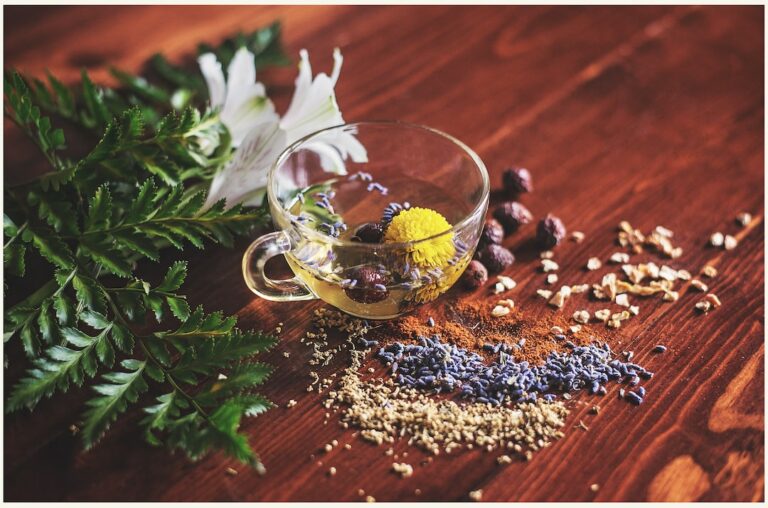Introduction
What is anxiety?
Anxiety is a common mental health condition characterized by feelings of fear, worry, and unease. It can manifest in various forms, such as generalized anxiety disorder, panic disorder, social anxiety disorder, and specific phobias. People with anxiety may experience physical symptoms like rapid heart rate, sweating, trembling, and shortness of breath. The causes of anxiety can be multifactorial, including genetic predisposition, environmental factors, and certain medical conditions. In addition to conventional treatment options, many individuals seek alternative approaches to manage anxiety, such as herbal supplements for stress. These supplements are derived from natural sources and are believed to have calming and relaxing effects on the body. Some popular herbal supplements for stress include chamomile, lavender, and valerian root. While research on the effectiveness of these supplements is limited, they are commonly used as complementary therapies for anxiety management. It is important to consult with a healthcare professional before starting any new supplement regimen to ensure safety and effectiveness.
Causes of anxiety
Anxiety can be caused by various factors, including certain deficiencies in the body. One deficiency that can contribute to anxiety is a lack of certain nutrients, such as magnesium and vitamin B12. These nutrients play a crucial role in the production of neurotransmitters that regulate mood and anxiety levels. Additionally, deficiencies in omega-3 fatty acids and zinc have also been linked to an increased risk of anxiety. It is important to maintain a balanced diet and ensure adequate intake of these nutrients to support overall mental well-being.
Link between deficiencies and anxiety
Deficiencies in certain vitamins and minerals have been linked to anxiety. One such deficiency is vitamin D. Vitamin D plays a crucial role in maintaining brain health and regulating mood. Research has shown that low levels of vitamin D are associated with an increased risk of anxiety disorders. It is important to ensure an adequate intake of vitamin D through sunlight exposure, fortified foods, or supplements. By addressing this deficiency, individuals may experience a reduction in anxiety symptoms and an improvement in overall well-being.
Vitamin D Deficiency

Symptoms of vitamin D deficiency
Vitamin D deficiency can lead to a variety of symptoms that can affect both physical and mental health. One of the most common symptoms is anxiety, which can manifest as feelings of unease, worry, and fear. Individuals with vitamin D deficiency may experience increased levels of anxiety and may find it difficult to manage stress. Other symptoms of vitamin D deficiency include fatigue, muscle weakness, bone pain, and frequent infections. It is important to address vitamin D deficiency through proper supplementation and exposure to sunlight to maintain overall well-being.
Research on vitamin D deficiency and anxiety
Research on vitamin D deficiency and anxiety has shown that there is a strong correlation between the two. Several studies have indicated that individuals with low levels of vitamin D are more likely to experience symptoms of anxiety. Vitamin D plays a crucial role in the regulation of mood and brain function, and its deficiency can lead to imbalances in neurotransmitters that are associated with anxiety. Moreover, vitamin D deficiency has been linked to an increased risk of developing anxiety disorders. Therefore, it is important to ensure adequate vitamin D levels through sun exposure, diet, or supplementation to support mental well-being and reduce the risk of anxiety.
How to prevent vitamin D deficiency
Vitamin D deficiency is a common condition that can lead to various health problems. It is important to take steps to prevent vitamin D deficiency in order to maintain optimal health. There are several ways to ensure an adequate intake of vitamin D. Firstly, spending time outdoors and getting sunlight exposure can help the body produce vitamin D naturally. Additionally, consuming foods rich in vitamin D, such as fatty fish, fortified dairy products, and egg yolks, can contribute to meeting the recommended daily intake. In cases where it is difficult to obtain enough vitamin D through sunlight and diet alone, supplements may be necessary. It is crucial to consult with a healthcare professional before starting any supplementation regimen. By taking proactive measures to prevent vitamin D deficiency, individuals can reduce the risks of developing associated health conditions and maintain overall well-being.
Magnesium Deficiency

Signs of magnesium deficiency
Magnesium deficiency can lead to various signs and symptoms that indicate an imbalance in the body. Some common signs of magnesium deficiency include muscle cramps, fatigue, irritability, and anxiety. It is important to address magnesium deficiency as it can have a significant impact on overall health and well-being. Herbal medicine safety is an important aspect to consider when exploring natural remedies for anxiety. It is crucial to consult with a healthcare professional and ensure the safety and effectiveness of any herbal remedies or supplements before use.
Studies on magnesium deficiency and anxiety
Studies have shown a strong link between magnesium deficiency and anxiety. Magnesium is an essential mineral that plays a crucial role in the functioning of the nervous system. Research has found that low levels of magnesium in the body can lead to increased feelings of anxiety and stress. In fact, a deficiency in magnesium has been associated with a higher risk of developing anxiety disorders. It is important to note that magnesium deficiency is a common problem, with many people not getting enough of this vital mineral in their diet. Fortunately, there are several natural remedies that can help address magnesium deficiency and promote emotional wellness. Herbs such as chamomile, lavender, and passionflower have been traditionally used to support relaxation and reduce anxiety. These herbs can be consumed as teas or taken in supplement form to help alleviate symptoms of anxiety and promote emotional well-being. Incorporating these herbs into your daily routine may provide a natural and effective way to support your emotional wellness.
Ways to increase magnesium levels
Magnesium is an essential mineral that plays a crucial role in our overall health. It is involved in various biochemical reactions in the body, including nerve function, muscle contraction, and the production of energy. Low levels of magnesium have been linked to increased anxiety and stress. Therefore, it is important to maintain adequate magnesium levels to promote a sense of calm and well-being. There are several ways to increase magnesium levels in the body. One effective method is to incorporate herbs and spices into your diet. Certain herbs and spices, such as turmeric, ginger, and chamomile, have been found to have anti-anxiety properties and can help alleviate symptoms of anxiety. These natural remedies can be easily added to meals or consumed as herbal teas. Additionally, taking magnesium supplements or using magnesium-rich topical creams can also help boost magnesium levels. By incorporating these strategies into your daily routine, you can support your body’s magnesium levels and promote a greater sense of relaxation and tranquility.
Omega-3 Fatty Acid Deficiency

Effects of omega-3 fatty acid deficiency
Omega-3 fatty acid deficiency can have various effects on the body. It is an essential nutrient that plays a crucial role in brain function and development. When the body lacks omega-3 fatty acids, it can lead to an increased risk of anxiety and mood disorders. Studies have shown that omega-3 fatty acids help regulate neurotransmitters in the brain, such as serotonin and dopamine, which are involved in mood regulation. Additionally, omega-3 fatty acids have anti-inflammatory properties, which can help reduce inflammation in the brain and improve overall brain health. Therefore, it is important to ensure an adequate intake of omega-3 fatty acids to prevent the negative effects of deficiency, including anxiety and mood disorders.
Research on omega-3 fatty acid deficiency and anxiety
Research on omega-3 fatty acid deficiency and anxiety has shown a strong correlation between the two. Omega-3 fatty acids are essential nutrients that play a crucial role in brain health and function. Studies have found that individuals with low levels of omega-3 fatty acids are more likely to experience symptoms of anxiety and depression. These findings suggest that a deficiency in omega-3 fatty acids may contribute to the development or worsening of anxiety. It is important to ensure an adequate intake of omega-3 fatty acids through a balanced diet or supplementation to support mental well-being.
Sources of omega-3 fatty acids
Omega-3 fatty acids are essential nutrients that play a crucial role in maintaining overall health and well-being. They are a type of polyunsaturated fat that cannot be produced by the body and must be obtained through dietary sources. Sources of omega-3 fatty acids include fatty fish such as salmon, mackerel, and sardines, as well as certain plant-based foods like flaxseeds, chia seeds, and walnuts. These foods are rich in alpha-linolenic acid (ALA), eicosapentaenoic acid (EPA), and docosahexaenoic acid (DHA), which are the three main types of omega-3 fatty acids. Consuming adequate amounts of omega-3 fatty acids has been associated with numerous health benefits, including reducing inflammation, improving heart health, and supporting brain function. Incorporating these omega-3-rich foods into your diet can help ensure you are meeting your body’s needs for these essential nutrients.
B Vitamin Deficiency

Symptoms of B vitamin deficiency
B vitamin deficiency can lead to a range of symptoms that may contribute to anxiety. These symptoms include fatigue, irritability, poor concentration, and mood disturbances. Additionally, individuals with B vitamin deficiency may experience muscle weakness, tingling or numbness in the hands and feet, and difficulty sleeping. It is important to address B vitamin deficiency through natural medicine and dietary changes to alleviate these symptoms and promote overall well-being.
Studies on B vitamin deficiency and anxiety
Studies have shown a link between B vitamin deficiency and anxiety. B vitamins play a crucial role in the production of neurotransmitters that regulate mood and anxiety levels. Research suggests that low levels of B vitamins, particularly vitamins B6 and B12, can contribute to increased anxiety symptoms. In a study conducted on individuals with anxiety disorders, it was found that supplementing with B vitamins resulted in a significant reduction in anxiety levels. These findings highlight the importance of maintaining adequate levels of B vitamins to support mental well-being.
Foods rich in B vitamins
A deficiency in certain vitamins can contribute to the development of anxiety. One group of vitamins that play a role in anxiety management is the B vitamins. These vitamins, including B1, B3, B6, and B12, are essential for the proper functioning of the nervous system and the production of neurotransmitters that regulate mood. Foods rich in B vitamins include whole grains, leafy green vegetables, legumes, nuts, and seeds. Incorporating these foods into your diet can help support your mental well-being and reduce the risk of anxiety.
FAQ (Frequently Asked Questions)

Can anxiety be solely caused by deficiencies?
Anxiety can be influenced by various factors, including deficiencies in certain nutrients. However, it is important to note that anxiety is a complex condition that is typically caused by a combination of factors, rather than solely deficiencies. While deficiencies in certain nutrients, such as vitamin D, omega-3 fatty acids, and magnesium, have been linked to an increased risk of anxiety, it is unlikely that a single deficiency can solely cause anxiety. Other factors, such as genetics, environmental factors, and psychological factors, also play a significant role in the development of anxiety. Therefore, it is important to address all potential factors when considering the causes of anxiety.
What other factors contribute to anxiety?
There are several other factors that can contribute to anxiety. One of the main factors is stress, which can be caused by various situations such as work pressure, relationship problems, or financial difficulties. Another factor is a family history of anxiety disorders, as there may be a genetic predisposition to developing anxiety. Additionally, certain medical conditions, such as thyroid disorders or heart disease, can also contribute to anxiety. Substance abuse, including alcohol or drug use, can worsen anxiety symptoms. Finally, traumatic events or experiences, such as abuse or accidents, can trigger anxiety in some individuals.
How can deficiencies be diagnosed and treated?
Deficiencies can be diagnosed and treated through various methods. One common approach is to assess the individual’s symptoms and medical history, as certain deficiencies can manifest in specific ways. Additionally, blood tests may be conducted to measure nutrient levels and identify any deficiencies. Once a deficiency is diagnosed, it can be treated through supplementation or dietary changes. In some cases, healthcare professionals may recommend the use of best-selling herbal remedies, which have been shown to alleviate symptoms associated with certain deficiencies. These remedies can provide a natural and holistic approach to addressing nutritional imbalances. It is important to consult with a healthcare provider before starting any new treatment regimen.










































